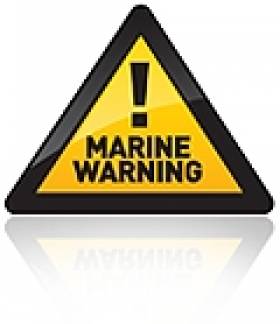Displaying items by tag: Statistic
In Tramore today, Council noted with some degree of satisfaction that the total number of drownings in Ireland in 2010 was 112, the lowest figure since 1952 when 104 people drowned. The highest figure recorded in any one year to date is 229 in 1994.
On average in Ireland there were 150 drownings each year in the decade to 2010, during which Irish Water Safety developed a range of educational and promotional campaigns to raise awareness about water safety which obviously is attaining a desired goal.
Speaking about the reduction in drownings, Minister for the Environment, Community and Local Government - Phil Hogan, T.D said: "112 lives lost to drowning in 2010 represents a 23% reduction compared to 2009 when 145 drowned. This reduction is a positive indication that the monies invested by Government, local authorities, corporate partnerships and the work of voluntary members promoting water safety nationwide are paying dividends in the saving of lives and the prevention of avoidable tragedies that devastate families and communities. I urge everyone to respect the dangers and to stay vigilant at all times. To stay aware is to stay alive." Continuing, Minister Hogan congratulated the Council and the members of IWS for their contribution in achieving a reduction in the numbers drowned.
Commenting on the decrease, the Chairman of IWS, Frank Nolan said: "We have ended a decade in which we can report that drownings in Ireland in 2010 were at their lowest for 58 years, reason enough to be confident that the work of Irish Water Safety and our partners in the public and private sector is having the desired outcome - more people enjoying our wonderful aquatic facilities more safely."
"That said, complacency is not an option for anybody as the statistics frighteningly reveal." continued Nolan. "Although 85% of accidental drownings were male, the adage 'boys will be boys' is alarmingly muted by the tragic fact that the vast majority of accidental drownings were not boys at all but grown men - 48% aged 45-65, compared to 15% aged under 24."
"I appeal to all adults to make themselves more aware of the dangers in, on and around water." he added, "It only takes seconds for tragedy to strike and this can so easily be avoided if people take responsibility for their own safety by learning about the hazards in advance of any trip to our wonderful waterways. One such step is to read Irish Water Safety's guidelines at iws.ie."
Irish Water Safety's statistical analysis is available at www.iws.ie. Excerpts from some of the graphs reveal that*:
In the 1970's, we averaged 91 accidental drownings each year. We ended the 00's averaging 55. Last year the figure dropped to 33.
In the 1980's we averaged 207 drownings each year. We ended the 00's averaging 150. Last year the figure dropped to 112.
In 2010:
48% of accidental drownings were aged 46-65
15% of accidental drownings were aged under 24
27% of all drownings were aged 55-64
67% of all drownings were male
85% of accidental drownings were male
56% of female drownings were suicide
40% of male drownings were suicide
*Note that the figure for drownings in which the cause (accident/suicide/assault) remains undetermined for 2010 is 25. 2010 drownings: 112 (53 accident, 68 suicide, 25 undetermined).





























































